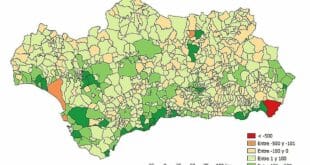Spain’s central Government has approved a proposed bill to regulate AI (artificial Intelligence) in a way that is ethical, inclusive, and beneficial. The proposed new law, approved by the Spanish central government following the ministerial council on Tuesday 12th March, adapts EU regulation which already focuses primarily on AI usage.
“This regulation completes the great European shield of digital rights, which protects citizens in the current context,” said Óscar López, minister for digital transformation and public administration. According to López, this regulation “pioneers at national and international level” and seeks to harmonise national legislation on new digital tools.
After the announcement, a draft bill entitled, “Ethical and inclusive use of Artificial Intelligence for Benefits”, will continue to go through the urgent procedure even though many of the regulations already exist.
The European AI Act regulates artificial intelligence since last August. It prohibits marketing, commissioning, or using systems that are deceptive or may manipulate someone’s decision-making or behaviour; that exploit vulnerable factors such as age, disability, or social or financial status; or assessment of people by scoring that could result in a detrimental treatment.
The EU law also prohibits the use AI systems for: predicting the risk of someone committing a criminal act based solely upon their profile or characteristics, expanding facial recognition databases through non-selective extraction of facial images from CCTV footage or the internet, focusing on the individual categorisation based on biometric information; inferring emotions in educational or work settings; or facilitating’real-time remote biometric identification’ systems in public places to law enforcement purposes.
“Artificial intelligence can be used in both good and bad ways. With this draft bill, we identify risks and banned practices, such as subliminal techniques or biometric recognition in public spaces, as well as ensuring the labelling of deepfakes,” said López.
According to this bill, Spanish authorities will be responsible for ensuring compliance with law: the Spanish Data Protection Agency in cases related biometrics. The General Judiciary Council in cases connected to justice. And the central electoral board when it comes to cases related implementation of AI into electoral processes. The rest of applications will be handled by the Spanish AI supervisor agency (AESIA).
Deepfake Fines
The draft bill also specifies serious penalties, which range from 7.5 million to 35 millions euros, or between 2 and 7% the global turnover of a company. This amount can be reduced for SMEs.
The definition of deepfake includes failing to correctly tag any images, audios, or videos generated or manipulated by AI that show real or fake people saying or performing things they’ve never done in places or times they’ve never been.
The bill was introduced at the same time as the controversy over a deepfake titled La Isla de las Corrupciones that was spread by Spain’s conservative Partido Popular party. The content of the video, which was later deleted following protests in Dominican Republic shows images of Caribbean country and PSOE members, hinting towards corruption. Days later, PP produced another publication, showing a succession of virtual images of various leaders or former leaders of the left, as well as president Pedro Sánchez’s wife.
 Costa News Spain Breaking News | English News in Spain.
Costa News Spain Breaking News | English News in Spain.






